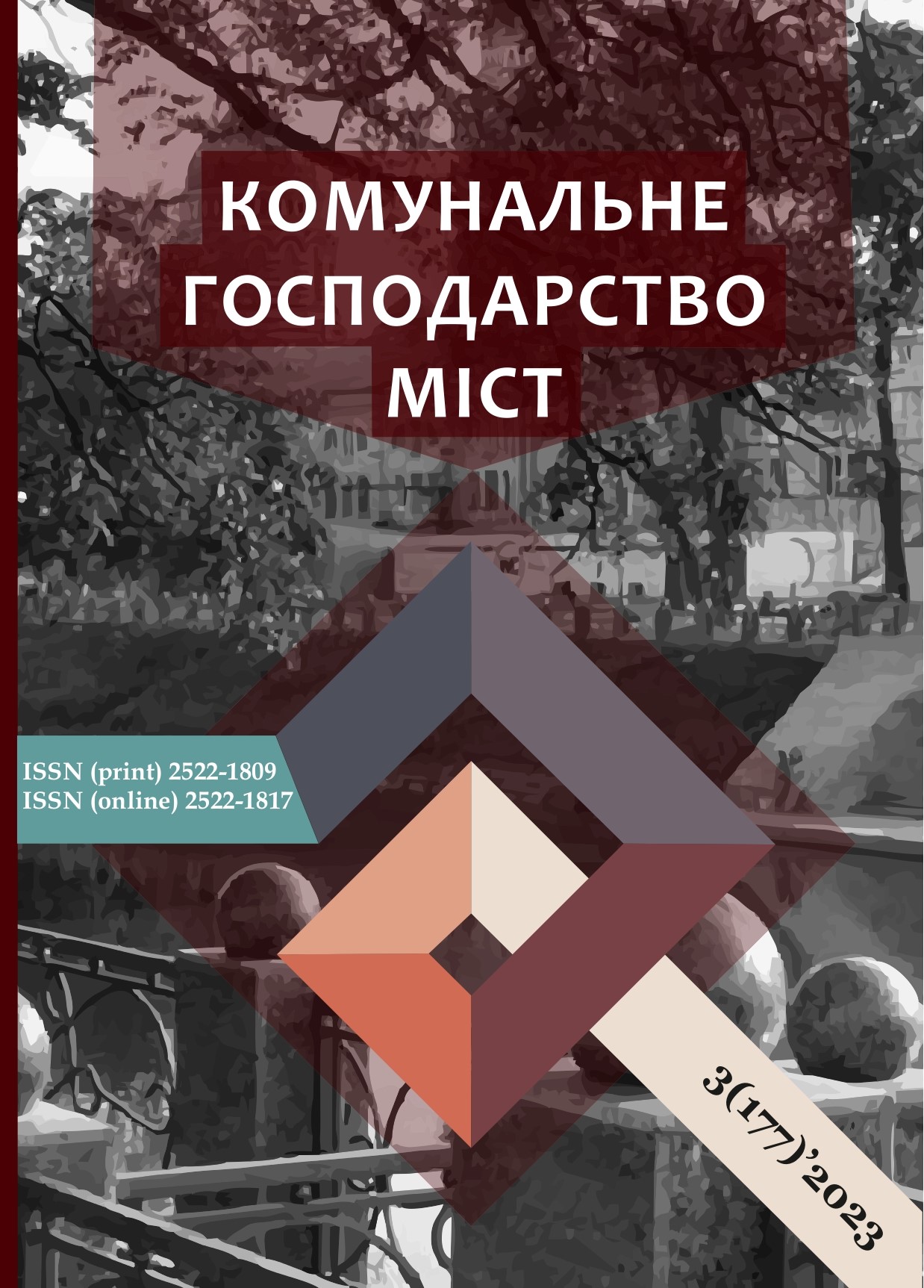CHARACTERISTICS OF THE EDUCATIONAL COMPONENTS OF THE IMPLEMENTATION OF THE PhD PROGRAM IN THE SPECIALTY OF GEODESY AND LAND SURVEYING
DOI:
https://doi.org/10.33042/2522-1809-2023-3-177-120-124Keywords:
educational components, PhD, educational programs, geodesy and land management, territorial development of the region, land use, geodetic and geospatial supportAbstract
It has been proven that the development and implementation of educational programs that shape the educational space and the possibilities of ensuring territorial development at various levels are of particular importance for training a qualified specialist. In this context, the characterization of the educational components of the implementation of PhD programs in geodesy and land management is a relevant and timely issue. The implementation of the PhD educational program is aimed at training a highly qualified, competitive specialist in the field of geodesy and land management by deepening and improving theoretical knowledge and practical skills, professional skills in the field of architecture and construction in the field of geodesy and land management, improving language and philosophical competences, forming the ability to conduct research and creation of modern systems of geospatial support and land use for the development of cities and regions. As a result of the study, the educational components of the implementation of the PhD program in geodesy and land management were characterized. Within the framework of the educational and scientific program, it is proposed to additionally characterize the components of the territorial development of land use in the regions. In particular, geospatial components are defined, where cartographic support, directions and possibilities of application of geoinformation systems and technologies are characterized, territorial, functional, socio-economic factors are distinguished. Urban planning, investment and ecological factors of territorial development of land use in the region are characterized. The educational components of the implementation of the PhD program in geodesy and land management are characterized. Competences are defined, which allows for the formation of a systematic approach to the training of specialists. It should be noted that the implementation of the educational program is formed through a range of issues related to the training of highly qualified specialists who are able to formulate and solve complex scientific and practical tasks in the field of geodesy and land management and implement the results of scientific research. Features of the application of the program include the possibility of taking into account the directions and features of territorial development and the efficiency of land use at the regional level. Mastering the presented program allows you to form an educational environment that takes into account the possibilities of using modern geodetic and geospatial tools, the provisions of the theoretical and methodological platform, and is aimed at ensuring the territorial development of the region and increasing the efficiency of land use.
References
Francia Kinchington. (2011) Developing Doctorates in Leadership: Exploring on alternative model, 3 December 2014., International Standard Classification of Education. ISCED 2011. UNESCO. Retrieved from: http://www.uis.unesco.org/Education/Documents/isced2011en.pdf
Danilyan O. G., Dzoban O. P. (2019) Educational and methodological manual for the discipline «Organization and methodology of scientific research», 40.
Dobronravova I. S., Rudenko O. V., Sydorenko L. I. (2018) Methodology and organization of scientific research: teaching. Manual. 607.
Gutorov O. I. (2017) Methodology and organization of scientific research: manual. 57.
Ladanyuk A. P., Vlasenko L. O. (2018) Methodology of scientific research. 252.
Lugovoi V. I., Talanova Zh. V. (2014) International standard classification of education: fields of education and training (post-garden analysis and application algorithm). Pedagogy and psychology, 3. 5–17.
Lugovy V. I., Slyusarenko O. M., Talanova Zh. V. (2014) National autonomy in higher education in the USA: experience for Ukraine. Higher education of Ukraine: Theoretical and scientific and methodological journal, 1. 217–225.
Rashkevich Yu. M. (2014) The Bologna process and the new paradigm of higher education: a monograph. 168.
Talanova Zh. V. (2010) Doctoral training in the world and Ukraine: monograph. 476.
Shvets F. D. (2016) Methodology and organization of scientific research: teaching. manual. 151.
Anisenko O. V., Platonova K. A. (2019) Modern surveying instruments, their importance and role in geodetic measurements. Investments: practice and experience. 4, 80–83. DOI: 10.32702/2306-6814.2019.4.80
Dmytriv O. P. (2019) Geodesy. Part I: teaching. manual. 166.
Voytenko S. P. (2012) Engineering Geodesy. 574.
Galushkina T. P. (2009) Economics of environmental management. 480.
Tretyak A. M. (2014) Land management: a textbook. 520.
Kaminetska O. V. (2017) Methodological basis of the research department of land resource potential areas. Agrosvit. 13, 39–42.
Tretyak A. M., Drugak V. M. (2005) Methodology and methods of scientific research in land management: teaching. Manual. 300.
Tretyak A. M., Tretyak V. M. (2016) Land management in Ukraine: regulation of land ownership and land use and organization of the territory of agricultural enterprises: monograph. 192.
Schweitzer J., Schweitzer V. Modeling of quality for engineering geodesy processes in civil engineering. Journal of Applied Geodesy. 5, 13–22. DOI : 10.1515/jag.2011.002
Downloads
Published
How to Cite
Issue
Section
License
The authors who publish in this collection agree with the following terms:
• The authors reserve the right to authorship of their work and give the magazine the right to first publish this work under the terms of license CC BY-NC-ND 4.0 (with the Designation of Authorship - Non-Commercial - Without Derivatives 4.0 International), which allows others to freely distribute the published work with a mandatory reference to the authors of the original work and the first publication of the work in this magazine.
• Authors have the right to make independent extra-exclusive work agreements in the form in which they were published by this magazine (for example, posting work in an electronic repository of an institution or publishing as part of a monograph), provided that the link to the first publication of the work in this journal is maintained. .
• Journal policy allows and encourages the publication of manuscripts on the Internet (for example, in institutions' repositories or on personal websites), both before the publication of this manuscript and during its editorial work, as it contributes to the emergence of productive scientific discussion and positively affects the efficiency and dynamics of the citation of the published work (see The Effect of Open Access).

